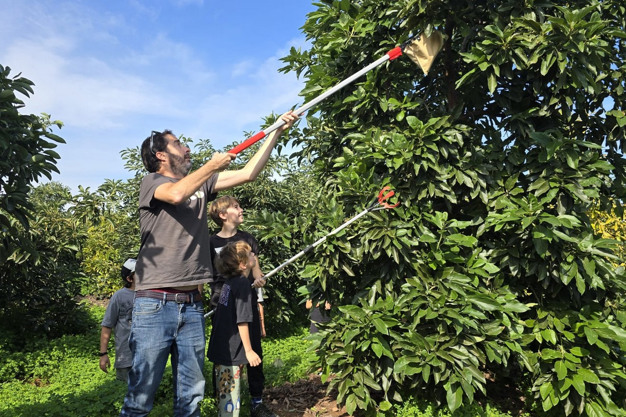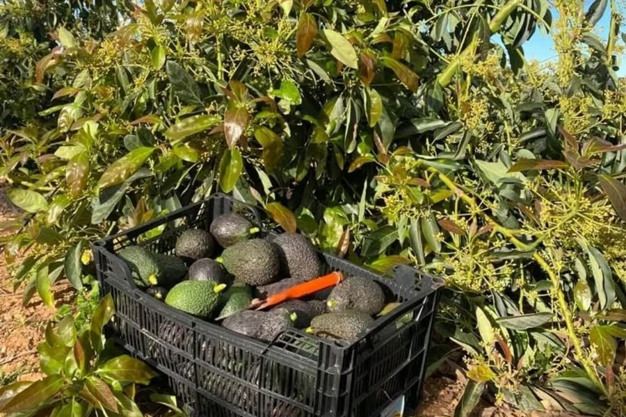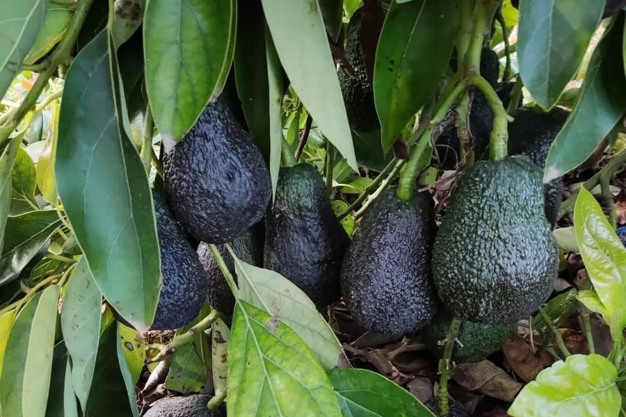Avocado cultivation continues to expand rapidly in the Valencian Community. According to the most recent data available, the acreage already totaled 3,700 hectares in 2023 and had increased by almost 19% compared to the previous year. In fact, the 695 hectares of first-year plantations accounted for in the region in 2023 represented almost 80% of the total first-year plantations in Spain, demonstrating the recent strong expansion of the avocado sector in the Valencian Community.
"The campaigns are also going very well in terms of prices," says Carlos Mocholí, of the company Amer Mocholí Fruits, a member of Asoproa. "In our case, in 2018 we decided to plant Lamb Hass, as well as its pollinator, Bacon, to a lower extent, and in 2024 our farm finally became fully productive."

"Prices in general have been very good and prospects for this year are also quite positive. Everything will depend, as always, on the price the market sets for the fruit. So far, it seems that Hass prices are somewhat lower than last year; nevertheless, we are confident in the advantage that our Lamb Hass has in its marketing window, from March to mid-April, just between the end of the domestic Hass season and the beginning of the Peruvian export campaign," says Carlos.
"It's also worth highlighting that the Lamb Hass is a variety that can be kept on the tree without any issues until May and even June, which can also be an interesting commercial period for domestic avocados."

"Moreover, everything points to the fact that this year's Lamb Hass season may start earlier, at the end of February, which would mean less overlap with the first Peruvian avocados. It is true that we can't compete with them in terms of price but, as Asoproa insists, we can definitely do so in terms of quality, which is the main feature of our avocados" says Carlos.
"Our fruit is harvested at the right moment of ripeness, which guarantees a good flavor and internal quality, unlike the avocados that spend three weeks locked in a chamber with an artificial atmosphere while traveling by ship to Europe. Consumers can easily tell the difference between one and the other. By this I don't mean that the fruit from Peru is bad; I imagine that eating a Peruvian avocado in Peru must be just as good as eating a Valencian avocado in Valencia; but in order for it to withstand the export process, the fruit cannot arrive in the same condition," he says.

"As far as sizes are concerned, this year they are looking good. In the area where my trees are located, which fortunately is to the north of Valencia and was not affected by the DANA, there has been good rainfall and both the avocados and oranges have grown to really good sizes. On top of that, due to the dry season, this year the trees have a lower fruit load and this has also contributed to the production growing to larger sizes," says Carlos. "Now all we can do is hope that buyers will see the value of this and pay the right price for this year's Valencian avocados," he says.
For more information:
Amer Mocholí Fruits
Tel.: +34 620 699 092
carlosmocholi@hotmail.com
https://aguacatesdelcampdemorvedre
